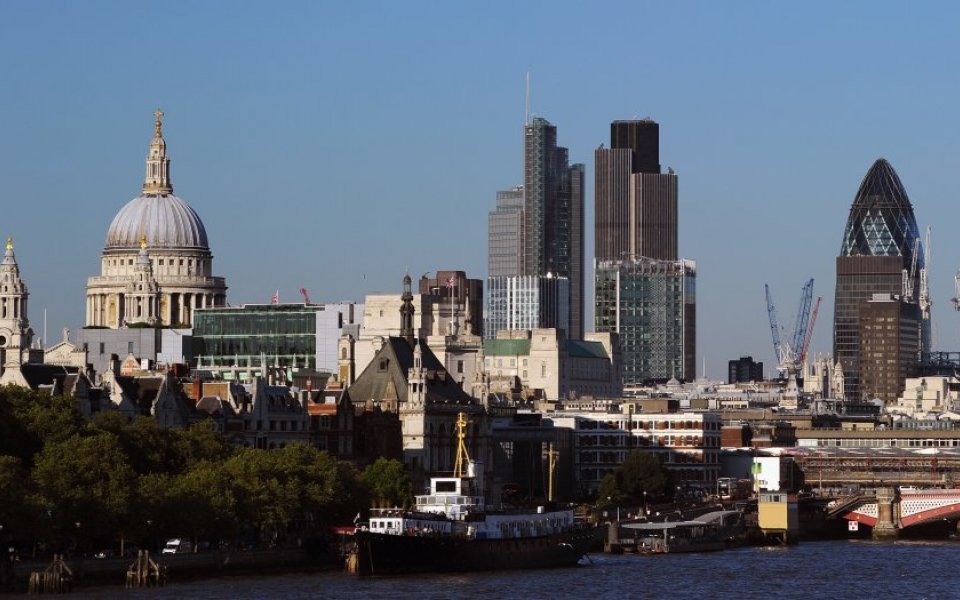Why the City of London Corporation should not abandon neutrality over Brexit and endorse a vote for Remain

Today, at 1pm precisely, a quaint and rather gorgeous ceremony will take place in Guildhall. Preceded by a swordbearer and a macebearer, the Lord Mayor of London will sweep majestically into the “Court of Common Council” to preside over the meeting of one of the world’s oldest democratic bodies continuously in existence, the City of London Corporation – the body that runs the Square Mile. He shall be attended by the aldermen of the City, and the common councilmen – of whom I am one.
Sounds nice, you might think. Or boring, depending on your point of view. But the Corporation matters. The Lord Mayor undertakes quasi-ambassadorial work both at home and abroad on behalf of the City. The Corporation administers large funds and runs the Square Mile as a local authority. And, relevant to today’s proceedings, it purports to “speak for the City.”
It is in this capacity that Mark Boleat, the Corporation’s chairman of policy and resources and columnist in these pages, proposes that the Corporation ends its position of neutrality in the forthcoming referendum about British membership of the EU. He and his supporters, claiming that the Corporation must remain “relevant” and that “the vast majority” of the City is for Remain, wish to change our stance and actively campaign in favour of staying in the EU. They wish us to register as participants in the campaign with the Electoral Commission, with the ability to spend above the £10,000 limit in campaigning that comes as a result of registration.
Personally, I am all for Brexit. But when it comes to the Corporation, I don’t seek to have it adopt my view. I campaign personally for my position, as Boleat is entitled to do; but as a body, I do not think that we should adopt a corporate position.
To do so is strongly akin to adopting a party political stance. We steer clear of that; for we will need to be able to operate with people on both sides of this debate long after it is done. The chairman is fond of pointing out that we take a position on Heathrow and migration visas, but most people will agree that this is an entirely different magnitude altogether to those examples.
In fact, it is clear that opinion in the City is divided, not united. The letter that appeared in City A.M. last week from leading businesspeople about the decision we make today, urging us to remain neutral, attests to that. Two thirds of people with stock market investments are for Leave, according to research from the Share Centre, and fund managers like Neil Woodford have argued that leaving would not damage the British economy.
Our electors – residents, barristers, butchers, professional services businesses and law firms in my case – haven’t been canvassed in any meaningful way. Many are for Out. Many are for Remain. We don’t genuinely represent anyone on this. If you want proof, as a reader of City A.M. and almost certainly a City worker, ask yourself this: have you been asked your view by the Corporation?
For those who fear that the pro-EU City will go unrepresented by a corporate body: TheCityUK is well funded, it lobbies and it comes without any of the democratic/mandate issues I have set out above. When Zac Goldsmith announced that, like Boris Johnson, he was for Out, it was The CityUK quoted in the media opposing his view, and not the Corporation. Quite right too. They are hosting an event with the Europe minister, David Lidington, on Brexit on 9 March. They will undoubtedly apply to be a participant in the campaign.
I love the Corporation. We are an obscure body, but also an adornment to British life. We survive – not folded into another authority, not abolished as some party manifestos sometimes propose – because we are perceived as being fair dealers and not as partisans. We will lose that shield if we decide today to become partisan – and the friends we have relied on in the past to protect us in such debates will not forget it.
There will, or should be, a Corporation long after Boleat and I are no longer elected to it, and long after the referendum is history. We should continue to host debates, not be a participant in them – once the referee picks a side on the pitch and starts playing for it, he can’t be the referee again. Our neutrality has served us well – as it did on this same question in 1975, and as it did in the Scottish referendum only recently. We should remain neutral now too.